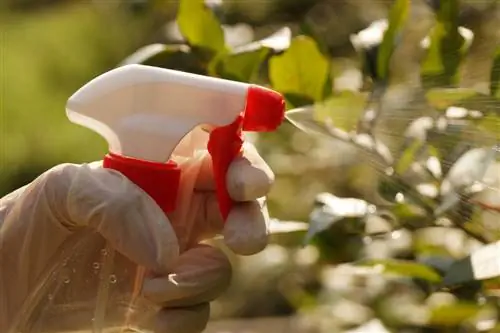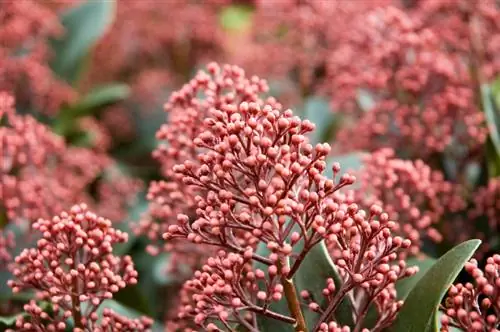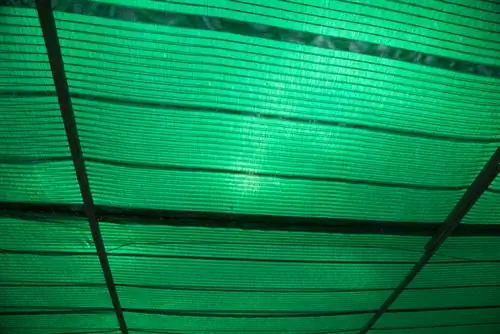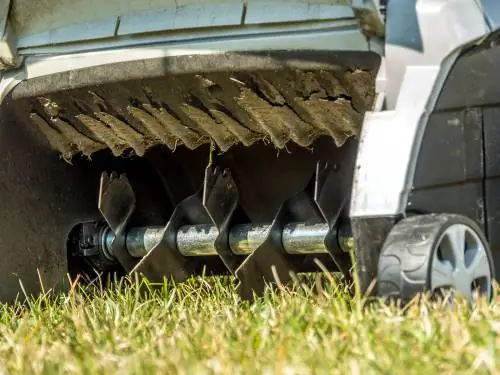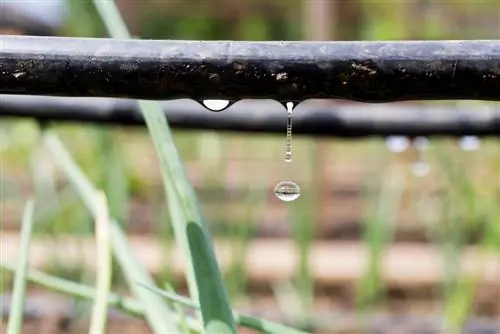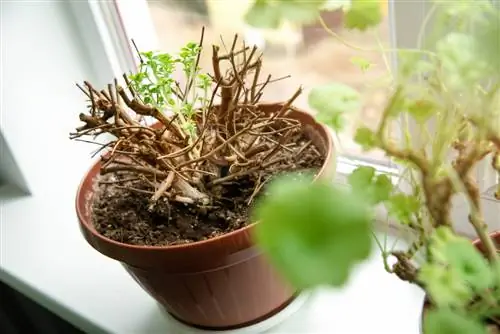- Author admin leonars@hobbygardeners.com.
- Public 2023-12-16 16:46.
- Last modified 2025-01-23 11:21.
Mildew is a foliar disease that many gardeners fear and is spread by a fungus. Since mildew can even lead to the death of the plant if the infestation is very severe, preventative measures are recommended. With the tips and tricks on this page, you can easily prevent the dirty film from forming on your plants.
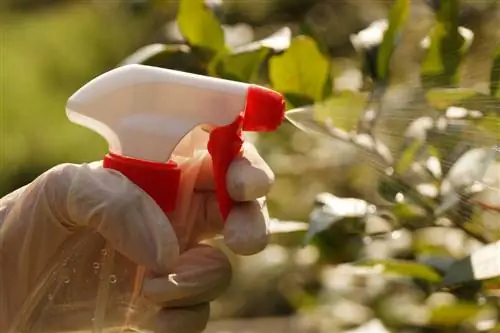
How can I effectively prevent mildew?
To prevent mildew, you can use natural remedies such as milk and water, baking soda and water or plant broths, rely on resistant plants and consider thoughtful planting and care, such as sufficient distance and sunlight, natural predators and low-nitrogen fertilizers.
Helpful measures
Spray plants preventively
Home-made remedies are suitable for this
- Milk and water
- Baking soda and water
- Field horsetail
- Stinging nettle manure
- or garlic
Note: The plant broths mentioned above contain substances that strengthen the plants' defenses. They not only counteract the development of the dreaded powdery mildew, but also serve as a gentle alternative to chemical agents if the fungus has already established itself on the leaves.
Thoughtful planting
- Ask your nursery about resistant plant varieties
- maintain sufficient distance when planting
- make sure there is enough sunlight and good air circulation
- place susceptible plants next to suitable neighbors, for example basil, foxglove, chervil or chives
- attract natural predators like ladybugs
Care
- use low-nitrogen agents for fertilizing
- adhere to the fertilizer dosage instructions
- fertilize with organic products if possible and do not use artificial fertilizers
- Do not water plants in the evening
- never water from above, do not put water directly on the leaves
- Avoid waterlogging when watering
- enrich the soil with compost in spring
- Humus provides plants with lots of nutrients and in this way strengthens their defenses
- Check plants regularly for symptoms
Avoid spread
To protect other plants from powdery mildew, you should dispose of affected plants at the first sign of infestation. Under no circumstances should you simply throw the cut branches into the compost. The diseased shoots should be placed in the trash when sealed airtight. Weed your garden regularly. This offers the introduced fungus an optimal breeding ground to multiply.
Attention: Vegetable plants often suffer from powdery mildew because there are still old fruits such as potatoes underground that were overlooked during harvest. If these germinate again, the risk of pest formation increases. Hook your beds carefully and collect last year's forgotten harvest.

